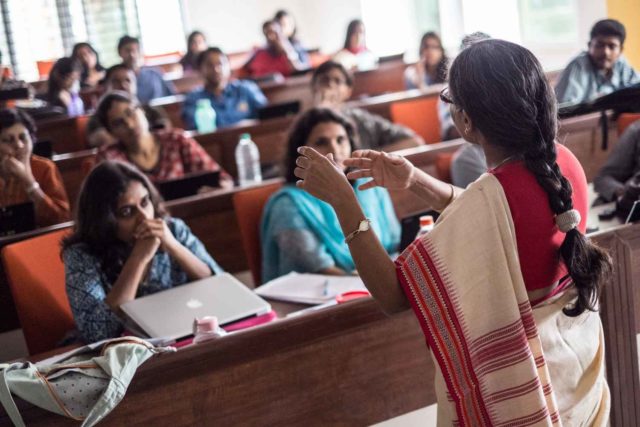A few months back, Mumbai University announced an important change in their syllabus regulations in the Zoology Department. From now on, the Zoology students will be invited to participate in drafting the syllabus for their sixth semester for Bsc Zoology. This flexibility will allow students to decide ‘What do they want to learn?’

This is a very poignant moment in the history of Indian education system. For years, the deeply rooted traditional systems which were followed without a much as batting an eyelid, is now undergoing a revolutionary phase of transformation. It may be too small or too slow to be noticed, but the wave of change is irrevocably on the move. The question, ‘what do the students want to learn’ lays the foundation for a learner-centred curriculum rather than the teacher centred approach. The learner is the focus of a learning process and hence is an integral part of the debate between ‘what the students need to know and what do they want to know’. The idea is not to eliminate practices rather modify existing systems to bring our students at par with the world requirements.
Indian higher education is indeed at a crossroad today. Technological advancement in the field of education and studies on pedagogical tools have pushed forth an impending need to revise our curriculum and teaching practices. Learning is no longer viewed as a process restricted by the four walls of the classroom. Rather it is a forum to educate the student about the world through adequate opportunities to practically apply the knowledge gained, test their skills and most importantly create a desire to learn for life, not just for a degree. Keeping this in mind, there are several universities that have come up in across the country who are active recipients of this wave of change.
Universities such as Ambedkar University, Ashoka University, Tata Institute of Social Sciences offer interdisciplinary courses as a part of their curriculum. This provides the student with a balanced learning opportunity as well as opens doors to studying disciplines interconnected with their main subject. Students can also opt to major as well as a minor in two interconnected disciplines, paving way for exploring a career in either field. Unlike earlier times, students are no longer restricted in their learning and are exposed to a breadth of subjects alongside the emphasis on their depth. Interdisciplinary approach of education is yet to find space in public institutions higher education and the field is mostly dominated by private players, restricting their access owing to its high fee structures. However, many of them offer financial aids and scholarship programmes to deserving candidates.
Another new phenomenon noticed is the interesting mix of faculty provided by some of these Universities. The selection process takes into account not just their educational qualification but also what new can the chosen faculty offer to the students. The campus is often designed to initiate a free flow of conversation between the students and faculty, bridging the gap between the two. For instance, a student of Ambedkar University shared how her professors would conduct their classes outside the classroom in an open space, opting for a discussion rather than a lecture mode of teaching. Even the class room setting has undergone a change with several institutions experimenting with the effect of different seating arrangements on the concentration and class participation of the students. This is indeed a far cry from the traditional packed lecture hall, with students peering down at one facilitator whose is the only voice bouncing off the class room walls.
Indian Higher education system cannot be simply discarded by calling it outdated. Yet it is impertinent to change as any system will reek of stagnation after awhile. The need for change has been heard and the wheels of reform are in motion. Now time will tell its tale!


























